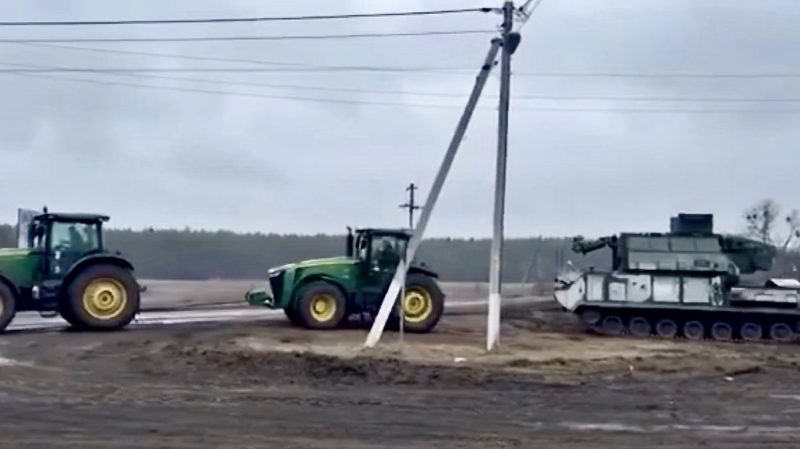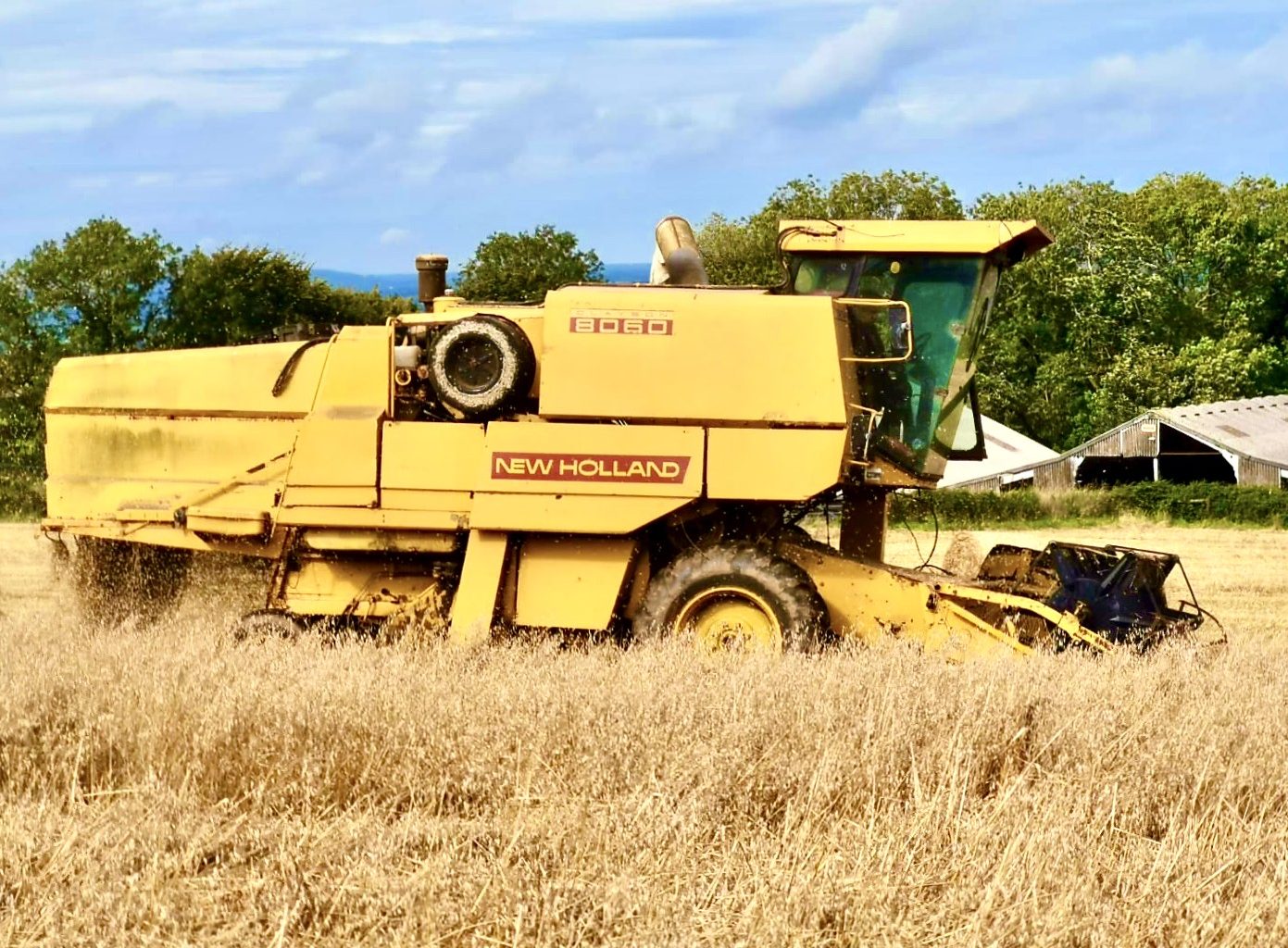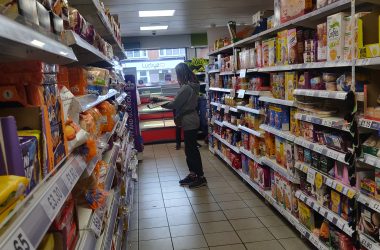Kyiv, Ukraine’s capital, might be over 1300 miles away from London, yet the deeply interconnected nature of the world economy means that the breakout of war could have devastating impacts on a globalised world.
The economies of western nations are preparing for tough times, and it is the ordinary people that must withstand economic struggles waged by conflict. This violence has crippled the Ukrainian economy and the knock on impact of war will have repercussions across the globalised world. As seen in the UK, the impact is being seen through the rapid inflation of gas prices. Our dependence on fossil fuel energy is to blame, and its consequences stretch far wider than the meter ticking over when the lights turn on.
Ukrainian government officials are predicting their total losses so far to have reached $5.4bn. The international monetary fund (IMF) project Ukraine’s GDP will fall 10% from last year with that figure potentially rising to 35% the longer the war continues. Loss of life, damage to infrastructure, trade disruption and an outflow of refugees are the key factors damaging Ukraine’s GDP according to the IMF.
Ukraine is a significant player in the production and distribution of grain to global markets, they harvest 12% of the world’s wheat and 16% of maize (which is used for animal feed). Ukrainian National Agrarian Forum (UNAF) director, Mariia Didukh explains: “more than 41% of exports from Ukraine are agricultural commodities and agricultural products.” The trading of wheat and maize is essential for Ukraine’s total GDP with the sale of grain, accounting for around 13% of the country’s income.
However since Russia’s attempted invasion, export of these products have been halted. Didukh says: “at the end of February all exports from Ukraine were blocked, the ports were blocked even the logistics were impossible in some regions.” Russian ships have ceased the seaports and currently command the black sea, preventing any cargo ship from leaving the port.
Subsequently, Ukrainian farmers started exporting grain via rail, but this mode of extraction is less efficient and much more costly. Ukrainian transport authorities have said as much as 600,000 tonnes of grain can be exported by train per month. This is a substantial drop from the five million tonnes that were exported prior to the war via cargo ships.
The situation for farmers worsens as we enter the spring harvest season. Didukh further explains, “The spring sowing campaign has a very limited period of time, and the weather is nice and warm in Ukraine. We can’t lose this chance. It needs to be done now.

“The spring sowing campaign one week ago was under big threat because we have some areas occupied. In these areas, the spring sowing couldn’t be organised because some of the lands and fields are mined and in some fields there are a lot of Russian troops, and they [the Russians] even destroyed the agricultural machinery.”
Initially, Ukrainian officials expected that only 30% of the total crop will be planted, but that figure has since risen to 50% with a potential 70% of total areas being planted. But this is challenge for Ukrainian farmers especially with the threat of Russian invasion and bombardment looms: “It’s unreal, the mission is impossible, but we have to do it. The farmers are brave. In the occupied territories, which are 10 out of 24 regions in Ukraine, Russian troops are shelling farms. Its unbelievable conditions, but they are continuing to work, and they are trying to do their best. They are working not only in the fields, but they are also fighting and helping the Ukrainian armies.”
This disruption in supply has alerted the FAO (Food Agricultural Organisation) and EU officials to potential food security concerns, especially in areas already vulnerable to a hunger crisis. Mariia explains, “Last year, we provided food to 400 million people in the world. This means that these people if we couldn’t sow in [our crop] or even if we could and the war continues, we have to leave our yield at the fields because the Russian troops come, it means automatically that World Food security is under threat.”
Ukraine supplies approximately 6% of the world’s cereal products with African and middle eastern countries importing more than half of their cereal from Ukraine. However, prices of cereal have reached an all-time high and risen a further 5% since the beginning of the war because of additional export fees and higher demand. The rise in the price of staple grains has left the poorest nations vulnerable to a hunger crisis, none more so than Egypt, who relies on Ukraine for 85% of its wheat.
This issue may not be resolved soon, Mariia worries about farmers being able to afford the seeds, fertiliser and herbicides for the next harvest season, referencing the financial restraints Ukrainian farmers are experiencing due to them not being able to sell their current yield.
This is a concern that spans international borders, including the UK. Fertiliser is one product most affected by the conflict as Russia has restricted the import of the gasses needed to produce it. David George from the National Farmers Union, spoke about the impact fertiliser prices are having on the UK farming industry: “The price has gone through the roof. A farmer was telling me at the beginning [of the war] they were paying £210 a tonne for fertiliser. Now, they are paying £900 a tonne. The prices have quadrupled in a few months, and this is connected quite right with the international supply of gas. The price of that, of course, as we know gas was already going up and up and up before the Ukrainian Conflict, but that has exacerbated the situation.”
With fertiliser prices soaring, it will be a decision for farmers to bear the costs and hope to break even. David George explains how farmers can be financially crippled due to the costs of fertiliser, thus resulting in a decreased yield. He notes “these input costs are going to cause people a lot of pain in the short term because you can kind of factor in inflation, but not that much.”
The broader economic situation away from farming teeters ever closer to ensuing chaos between Russia and the West, particularly over gas supplies in Europe. However, much like the traditional warfare on the front line, it is the normal people that endure violence and terror. The weaponisation of Russian gas and Europe’s dependence on it is critical in funding Russia’s war machine.
Professor Alan Winters, director of the UK trade policy observatory, describes the situation as “a massive game of chicken,” adding, “the Russians are desperate to sell the stuff [energy supplies] and the other side are desperate to buy it. Each side knows that it has a weapon to stop the trade going on. It’s a test of who blinks first. Russia is very dependent on the sales of energy.”
A stark reality is that high energy prices have often led to a preceding recession and high inflation. This makes the UK’s immediate future relatively bleak. Professor Winters says: “Economies are fragile anyway and there’s a lot of concern about inflation. So far, the central bank seems moderately determined not to let it get out of hand.” But, gas and energy prices have risen 150% since the start of the war.
The economic impact of the Russian invasion will test both the UK and the world, its consequences and complexities will circulate throughout British and world politics for years to come. If Ukraine is to survive this war, it will be in large part because of the international support for Ukraine – lethal aid, monetary support and political action – and the condemnation of Russia and actions to starve its war machine of assets and finances. The ongoing impact on Ukrainian exports will emerge in greater detail as the days, weeks, and months persist. The current economic climate with energy prices reaching new heights, and the cost of fertiliser impacting food security, will require counter cyclical intervention to reduce the squeeze on everyday households.








